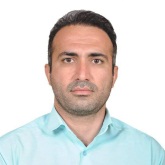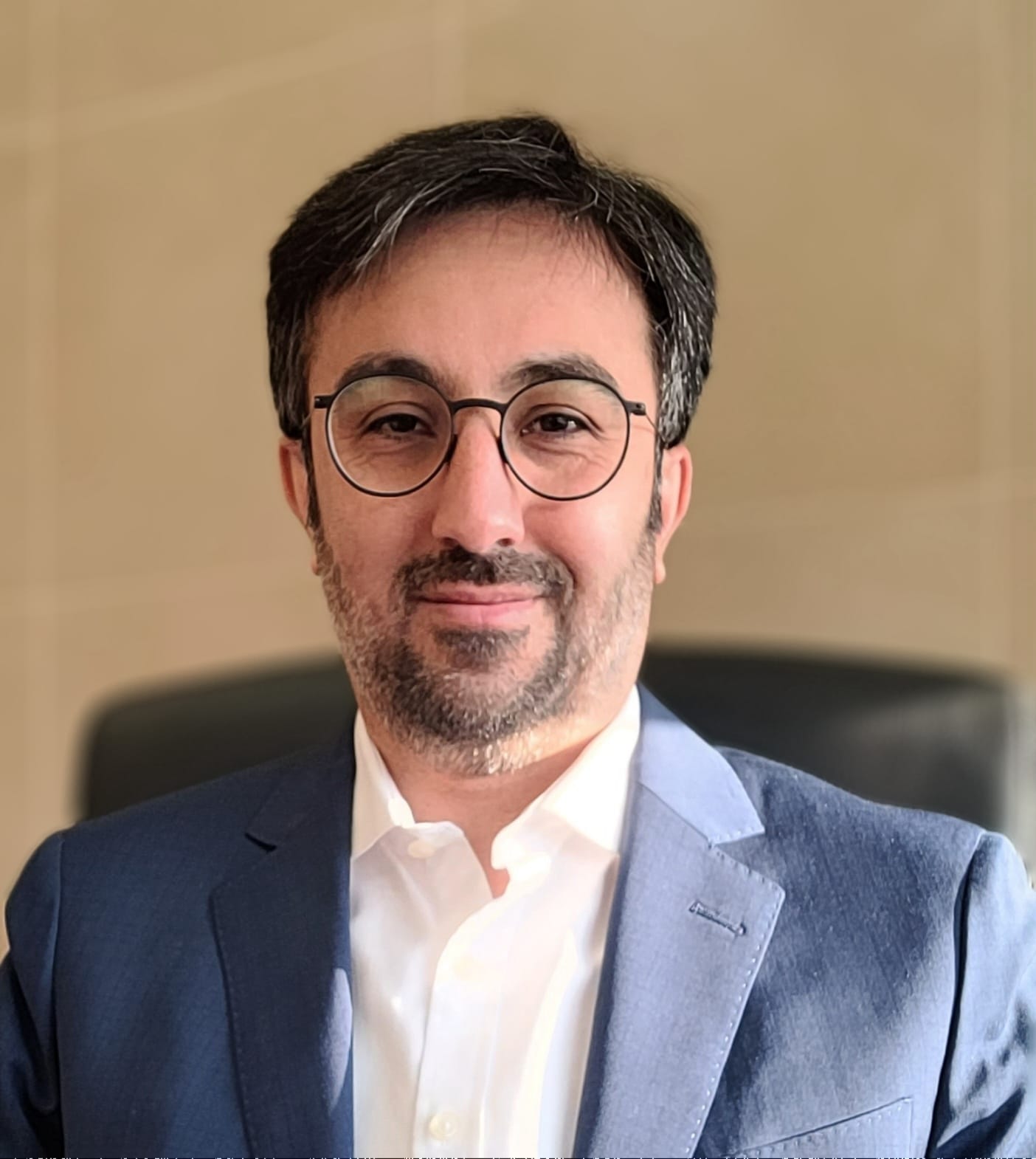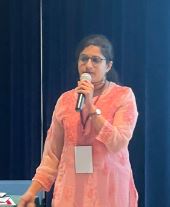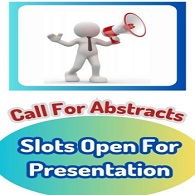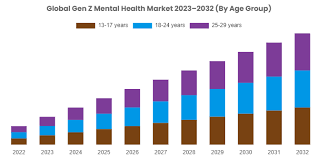Sessions & Tracks
Track: 1 Mental Health
Mental health disorder includes one’s emotional, social and psychological well-being. It directly effects on how we think, act. Mental health is very important in every aspects of life from childhood to adolescence through adulthood as it determines how an individual handle stress, relation to others and make choice. In the span of life, an individual’s mood, thinking and behaviour is affected if the individual experience mental health problems. There are many factors involved behind experiencing this disorder. Biological factors, life experience such as abuse or trauma, family history having mental health problems. There are more than 200 classified forms of mental illness. Some of the common disorders are bipolar disorder, schizophrenia, anxiety disorder and dementia.
-
Adult/children counselling
-
Cognitive Behaviour therapy
-
Multiple personality disorders
-
Obsessive-Compulsive Personality Disorder (OCPD)
-
Advanced treatments in mental illness
-
Gender differentiation
Track: 2 Human Resilience
How do an individual deal with difficult events like death of loved ones, serious illness, losing a job or some other traumatic events? Where many people react with a flood of strong emotions and other generally adapt well to life changing situation and stressful conditions. It involves resilience. Resilience is the process of bouncing back through well adaptation from difficult experience like trauma, tragedy, threats or stress.
-
Approaches to resilience
-
Resilience and ability
-
Psychological resilience
-
Biological models of resilience
Track: 3 Clinical Psychology
Clinical psychology is a branch of psychology which concerns with practical application of research methodologies and involved in the diagnosis and treatment of mental disorders. The professionals, clinical psychologists classify their basic activities in three main headings, which are assessment, treatment and research. Clinical psychologists are specialized in behaviour therapy, psychoanalysis, group therapy & family therapy. Research is very crucial in clinical psychology as their training in experimental clinical trials and statistical procedures and hence clinical psychologists are very important participants in the studies of mental health care.
-
Counselling psychology
-
Applied psychology
-
Experimental psychology
-
Psychological intervention
Track: 4 Psychology & Psychiatry
Psychology and psychiatry are a scientific discipline which deals with mental states and behaviour. It is a broad discipline includes many sub-fields such as human development, sports, clinical, social behaviour and cognitive process.
-
Social psychology
-
Geriatric psychiatry
-
Neurocognitive psychiatry
-
Emergency psychiatry
-
Cognitive psychology
-
Behavioral psychology
Track: 5 Child Abuse
Child abuse is just not the physical violence directed at a child. Child abuse can occur in home and abuser is in the form of their parents, caregiver and sometimes they are abused by other adults to whom they are dependent like teachers, nursery workers. Abuses on child is not every time intentional but if their parents and caregivers are no longer caring for the child then this results into dysfunctional behaviour and abuse.
-
Abusive minds
-
Parent child interaction therapy
-
Domestic violence
-
Suicidal tendency
-
Victims of sexual abuse
-
Child maltreatment
-
Child protection services
-
Child homicide
Track: 6 Women’s Mental Health
Research suggests that women are about 40% more likely to develop depression than men. They are also twice as men to develop PTSD (Post Traumatic Stress Disorder) and about 10% of women developed after traumatic event comparing to only 4% of men. Mental Disorders affect men and women differently. There are some disorders are common like depression and anxiety. Women experience mental disorder symptoms of mental disorder at the time of their hormonal change like perinatal depression, premenstrual dysphoric disorder and perimenopause related depression and during pregnancy.
-
Menopause/pregnancy related psychiatric disorders
-
Anxiety
-
Infertility/perinatal loss
-
Post-Traumatic Stress Disorder (PTSD)
-
Gender specific risk factors
-
Sexual discrimination
-
Psychological distress with gynaecological disorders
Track: 7 Child and Adolescent Psychiatry
Child and adolescent psychiatry deals in the treatment of mental health disorders of children aged up to 18 years. As many adult mental health disorders originate in childhood and these behavioural problems linked with difficulties throughout adulthood, so child and adolescent psychiatry is very crucial branch as it involves in detection and early treatment of mental health disorders.
-
Anxiety disorders
-
Autism Spectrum Disorder (ASD)
-
Social impact
-
Attention-Deficit/Hyperactivity Disorder (ADHD)
-
Aggression and violence
-
Adolescent counselling
-
Teenage depression
-
Child abuse and negligence
-
Emotional and Behavioural disorders
Track: 8 Adult and Geriatric Psychiatry
Geriatric psychiatry is a sub speciality of psychiatry which deals with the study, prevention and treatment of mental disorders in human with old age. It emphasizes the psychological and biological aspects of normal ageing.
-
Alzheimer’s disease
-
Depression
-
Geriatric counselling
-
Dementia
-
Geriatric nursing
Track: 9 Addictions and Mental Health
Mental health difficulties like depression, anxiety, PTSD, stress often leads an individual towards substance abuse and using these substances often worsen the mental health. Mental illness and substance abuse often occur together, and it is called Dual Diagnosis or Co-Occurring Disorder. Following are the mental health problems occur frequently with addiction. Anxiety, Attention Deficit Hyperactivity Disorder (ADHD), Post-Traumatic Stress Disorder (PTSD), Eating Disorder, Bipolar Disorder, Schizophrenia and Personality Disorders.
-
Alcohol addiction
-
Opioid dependence
-
Cognitive impairment
-
Drug use and toxicity
-
Hallucinogens abuse
-
Addiction and brain
Track: 10 Neuropsychiatric disorders
Neuropsychiatric disorders are organic brain diseases with psychiatric symptoms, as in Alzheimer’s and Parkinson’s diseases, that cause cognitive impairment, including dementia, amnesic syndrome, and personality–behavioral changes. As a clinical science, neuropsychiatry aims to explore the complex interrelationship between behavior and brain function from a variety of perspectives, including those of psychology, neurology, and psychiatry. This concise and updated monograph comprises the latest findings in the field and includes chapters on delusional symptoms, mood disorders and neurotic symptoms, cognitive impairment, behavioral and personality changes, and recently, cerebral alterations revealed in PTSD patients and in endogenous psychoses through neuroimaging and neuropathology.
Track: 11 Psychological Disorders
The term psychological disorder is more frequently known as mental disorders. Mental disorders are the pattern of psychological symptoms that impacts in multiple areas throughout the life span. Some of the psychological disorders are: Neurodevelopmental disorders, which include intellectual disability, global developmental delay, communication disorders, autism spectrum disorder, and attention deficit hyperactivity disorder.
-
Personality disorders
-
Schizophrenia
-
Major depressive disorders
-
Sleep disorders
-
Eating disorder
-
Bipolar disorders
Track: 12 Psychosomatic Disorders
Psychosomatic disorder is mainly used to describe a physical disease thought to be caused or to make even worse by several mental factors. Several factors can play role in psychosomatic disorders such as personality traits, family influences, genetic or environmental factors, learned behaviour and more.
-
Electro convulsive therapy
-
Hypnosis
-
Drug abreaction
-
Group therapy
-
Supportive psychotherapy
-
Psychoanalysis
Track: 13 Stress, Anxiety and Depression
Stress is a feeling of physical and emotional tension. Despite being unpleasant, it is not a disease but there are connections between stress and mental health problem like depression, anxiety, PTSD and psychosis.
-
Acute stress disorders
-
Insomnia
-
Social anxiety disorders
-
Persistent depressive disorders
Track: 14 Mental Health Awareness
Mental health affects approximately 19% of the adult population, 47% in children and 17% in children every year but half of the affected individual gets treatment. Untreated individual witness higher medical expenses, several associated problems, poorer performance in work and in school, less employment opportunity and increased risk of suicide.
-
Psychotherapy
-
Advanced treatments in mental illness
-
Licensed Professional Counselling (LPC)
-
Mental health education
-
Alternative therapies
-
Licensed Marriage and Family Therapy (LMFT)
-
Licensed Clinical Alcohol & Drug Abuse Counselling (LCADAC)
Track: 15 Psychiatric Rehabilitation
The mental health disorder treatment has two aspects. One of it is rehabilitation. Mental disorder requires medication along with the other forms of treatment. The treatment type depends on their diagnosis, the severity of disorder and individual’s physical and emotional state. Psychiatric rehabilitation is an aspect of treatment which helps the person to return in the optimum level of functioning to lead a normal life. This can be brought by providing medical, psychological and social input though there are no strict boundary between treatment and rehabilitation.
-
Drug rehabilitation
-
Motivational interviewing
-
Brain injury
-
Positive psychology management
-
Individual Placement and Support (IPS)
-
Medication and psychotherapy
-
Juvenile mental health & rehabilitation
-
Criminal recidivism & rehabilitation program
Track: 16 Psychiatric and Mental Health Nursing
Psychiatric mental health nursing is a speciality in nursing. Mental health psychiatric registered nurses work with individuals, families, groups and communities, assessing their mental health needs. People do not generally consider mental illness as true medical conditions, but they are more distressing than other body diseases. The psychiatric nurses specialize in mental health helps patients to overcome in their psychiatric disorder and the stigma associated with it.
-
Nursing and mental health
-
Nursing education in mental health
-
Psychiatric health nursing practice
Track: 17 Psychiatry and Psychology Practices
Psychiatrists are trained medical doctors, they can prescribe medications, and they spend much of their time with patients on medication management as a course of treatment. Psychologists focus extensively on psychotherapy and treating emotional and mental suffering in patients with behavioural intervention.
-
Hypnotherapy
-
Transcranial Magnetic Stimulation (TMS) therapy
-
Interpersonal therapy
-
Acupuncture therapy
-
Psychotherapy
-
Psychoanalysis and psychodynamic therapy
Track: 18 Psychopharmacology Role: Mental Health
Psychopharmacology is the study of the changes in mood due to substance abuse or drug induces. These drugs can be obtained from natural sources as well as through chemical synthesis in laboratory. These drugs interact with the nervous system and make changes in physiological or psychological receptors.
-
Modern psychopharmacology
-
Psychopharmacological substances
-
Psychoactive drugs
-
Psychopharmacologic medication
-
Placebo medications
Track: 19 Mindfulness Yoga & Medication
Mindfulness is an integrative approach that help individual to manage their thoughts and mental health.
-
Psychoactive medication
-
Anti-psychotics medication
-
Mindfulness techniques and training
Track: 20 Psychopathology
Psychopathology, also called abnormal psychology, the study of mental disorders and unusual or maladaptive behaviours. An understanding of the genesis of mental disorders is critical to mental health professionals in psychiatry, psychology, and social work. The developmental psychopathology perspective represents an integration of several distinct scientific disciplines, including genetics, neuroscience, and psychiatry, as well as experimental, clinical, and developmental psychology. Developmental psychopathology has emerged as a leading scientific framework for identifying the dynamic exchange processes that influence both adaptive and maladaptive behaviour.
Track: 21 Youth mental health
Adolescence is a crucial period for developing social and emotional habits important for mental well-being. These include adopting healthy sleep patterns; exercising regularly; developing coping, problem-solving, and interpersonal skills; and learning to manage emotions. Protective and supportive environments in the family, at school and in the wider community are important. Multiple factors affect mental health. The more risk factors adolescents are exposed to, the greater the potential impact on their mental health. Factors that can contribute to stress during adolescence include exposure to adversity, pressure to conform to peers and exploration of identity. Media influence and gender norms can exacerbate the disparity between an adolescent’s lived reality and their perceptions or aspirations for the future.
Track: 22 Digital Psychiatry
Mental health technologies used by professionals as an adjunct to mainstream clinical practices include email, SMS, virtual reality, computer programs, blogs, social networks, the telephone, video conferencing, computer games, instant messaging and podcasts. Similarly, although digital mental health technologies hold potential for increasing the autonomy and sense of empowerment of young adults, they also raise the risk of diminishing patient autonomy by increasing the risk of digital addiction and manipulation. This recovery management involves numerous aspects, including further education, record-keeping, medication reminders, progress monitoring, and more. Technology provides tools that help many manage important daily tasks that help improve and maintain their mental health.
Past Conference Report
Mental Health 2025
We would like to thank all of our wonderful speakers, conference attendees, students and guests for making Mental Health 2025 a wonderful event!
Conference Series hosted the 13th International Conference on Mental Health and Human Resilience, on April 29-30, 2025, as a Webinar based on the theme “Enhancing Mental Health: Building Resilience and Well-being”.
The conference was marked with workshops, multiple sessions, Keynote presentations, panel discussions, and Poster sessions. We received active participation from scientists, young and brilliant researchers, business delegates and talented student communities, who have driven this event into the path of success.
Conference Series has taken the privilege of felicitating Mental Health 2025 Organizing Committee, Keynote Speakers who supported for the success of this event. Conference Series, on behalf of the Organizing Committee congratulates the Best Poster awardees for their outstanding performance in the field of psychiatry and appreciates all the participants who put their efforts in poster presentations and sincerely wishes them success in future endeavours.
With the unique feedback from the conference, Conference Series would like to announce the commencement of the "14th International Conference on Mental Health and Human Resilience”, during June 22-23, 2026 at Madrid, Spain.
For more details please visit: https://mentalhealth.insightconferences.com/
Past Reports Gallery
